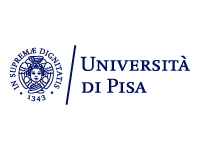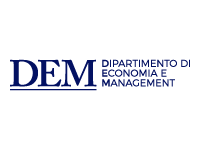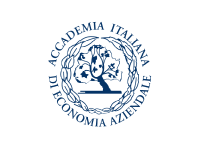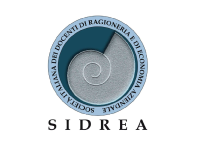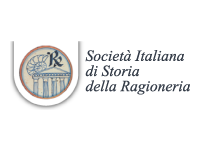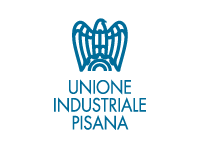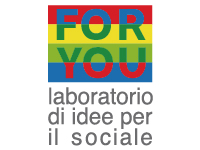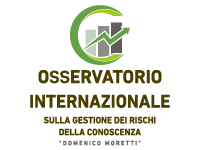Conference theme: Accounting in a changing world
The interrelationship between accounting and organisational and social change has attracted the interest of many accounting scholars (Napier, 2006; Walker, 2016; Carnegie et al., 2023). Thanks to an interdisciplinary approach, the discipline of accounting has moved beyond its traditional focus on economic and rationalist technicisms to embrace a broad vision of accounting as not only a technical but also a moral and social practice (Carnegie et al., 2024). It is widely recognised that accounting is intimately linked with the social context in which it operates. Not only does the social context influence accounting, but it is also affected by the accounting itself. This field of research no longer focuses on a conception of accounting as a neutral instrument that measures objective phenomena, but seeks to examine the role of accounting in society (Gendron, 2018; de Villiers and Sharma, 2020; Maran et al., 2023).
From the past to the present, organisational and social changes have shaped the world in which we live. Breaking points in the form of political, economic, social, environmental crises and digital transformation have attracted the interest of accounting scholars, who have sought to understand how accounting can help manage these changes and how the latter can trigger a process of change within accounting itself (Robson and Ezzamel, 2023; Carnegie et al., 2024).
Political, economic, social and environmental crises have profoundly affected society by raising and exacerbating numerous sustainability challenges, including those related to environmental disasters, epidemics and inequality. Accounting research has made great strides in understanding the intersection between accounting and sustainability (Bebbington and Unerman, 2020; Twyford, 2023; Bigoni et al., 2023; Carnegie et al., 2023, 2024). Accounting has been studied in relation to the many practices, such as financial reporting, auditing, cost measurement and performance management, that can be decisive in promoting responsible business and sustainable development. Attention has also been extended to the public sector, where scholars are increasingly interested in studying the place of accounting within the process of public value creation. This fuels reflections on how public value measurement and management can overcome the limitations of approaches that are limited to measuring efficiency and support public administrations in producing public services that contribute to creating a socially and ethically responsible society (Bracci et al., 2019; Moore, 2014). An ongoing research programme that deserves further attention is the study of the potential of accounting to promote change in society and organisations through the formation of new identities guided by ethical principles. This is made possible by exploring the potential of accounting education as a catalyst for shaping a future generation of socially aware and ethically guided accountants (Othman and Ameer, 2024; Twyford et al., 2024). In addition, this research agenda encourages reflection on how dialogic accounting and accountability influence political contestation and the emergence of ethically engaged social movements (George et al., 2023). Accounting scholars are also encouraged to reflect on the ‘dark side’ of accounting, where accounting practices reinforce the marginalisation of certain social groups or promote greenwashing techniques that ‘sell’ a corporation as environmentally conscious even when it de facto pursues ‘business as usual’. This tends to perpetuate organisational structures that reproduce power inequalities (Chiapello, 2017; Bigoni and Mohammed, 2023; Ghio et al., 2024).
Digital transformation through the development of technologies such as social media, big data, internet of things and artificial intelligence is a further organisational and social change which has overwhelmed our society and paved the way for studies on the challenges and limitations of such technologies in relation to accounting. Studies have started to explore the role of these technologies as an information tool within accounting processes (Mancini et al., 2021; de Villiers et al., 2021; Stainbank and Gurr, 2016). It is therefore important to understand the new capabilities that are needed by an accountant to harness digital transformation and enable it to be integrated into accounting practices (Ferri et al., 2021; Mancini et al., 2021). Among the various digital technologies that have emerged, increasing attention is being paid to artificial intelligence as a tool that imitates human problem-solving and learning capabilities (Staszkiewicz et al., 2024; Bracci, 2023). In the context of universities, accounting scholars worry that “colonization of academia by artificial intelligence may erode, deskill and degrade core academic activities” (Gendron et al., 2022, p. 1) and invite further reflections on the implications artificial intelligence may have on those doing and evaluating research. Artificial intelligence is also invading the education of accounting students, thereby inviting reflections on the risks that such technology may pose to the learning process of future generations of accountants (Ballantine et al., 2024).
Given the multiplicity of organisational and social changes and their potential impact on accounting, there is a growing interest in studying the prodromes of the transformation and evolution of accounting thought in this changing world (Robson and Ezzamel, 2023; Alawattage and Wickramasinghe, 2022; Napier, 2006). The roots of the development of accounting thought lie in the changing socio-economic structure of the context in which such thinking occurs. Accounting intellectuals have tried to frame accounting thought to respond to the needs of the society in which they lived (Coronella and Maran, 2024; Näsi et al., 2014). For example, in the Italian context, the industrial development that marked the transition from small-sized agricultural, commercial or artisan family businesses to large industrial companies, led intellectuals to conceptually develop new accounting systems in order to respond to the needs of the emerging economic scenario. This led to the transition from the ‘asset-based view’ school of thought led by Fabio Besta, to the ‘income-based view’ school led by Gino Zappa (Coronella and Maran, 2024). The crucial role of accounting intellectuals in the process of changing accounting thought deserves further study. Deepening the role of academic and professional accounting intellectuals in the dissemination of accounting thought is also important, by highlighting how their position in the political and civil society is pivotal in this process (Costa et al., 2024). Additional research should also deepen the understanding of the function of educational institutions dedicated to the dissemination of accounting practices, such as universities, in the process of accounting change (Robson and Ezzamel, 2023).
Against this background, we are pleased to announce a conference of Meditari Accountancy Research on 4-5 September 2025 in Pisa, a historical city rich in monuments, museums and magnificent buildings of immense artistic value, including the world-renowned Miracle Square. Meditari Accountancy Research enjoys significant international reputation, it publishes around 90 articles a year and is ranked 8th among accounting journals by Google Scholar, and 20th by Scopus (CiteScore = 7.8). The conference will stimulate reflection on the interrelation of accounting with organisational and social change. In particular, the conference will trace the two-way connection of accounting with a changing world. On the one hand it will show how accounting can help manage, nurture or inhibit organisational and social change. On the other it will highlight the processes of change within accounting and how such change is triggered by the evolution of the external environment. The conference offers an opportunity for accounting scholars to investigate the major breaking points that have marked the progress of our society, such as political, economic, social and environmental crises, digital transformation and generation shifts, by adopting both contemporary and historical perspectives.
Although contributions covering a wide range of accounting topics, along with various methodological and theoretical frameworks, will be welcomed, authors are encouraged to align their work with the theme of the conference. Research may encompass, but is not restricted to, investigations that seek to answer the following research questions:
- What are the changes in accounting that have been driven by major political, social, economic and environmental changes?
- How are the organisational and social changes reflected in changing accounting paradigms?
- In the context of the many organisational and social changes, what opportunities and/or threats have been engendered in accounting?
- What are the determinants of changes in accounting thought?
- How does the role of accounting intellectuals in political, civil and cultural institutions influence changes in accounting thought?
- How and which accounting practices can foster change within society and organisations contributing to the creation of a world guided by ethical principles?
- How can accounting help inhibit organisational and social change and perpetuate socially accepted ideologies?
- How has accounting education been influenced by organisational and social changes?
- What is the role of accounting education in fostering generational change leading to a future generation of socially aware and ethically guided accountants?


